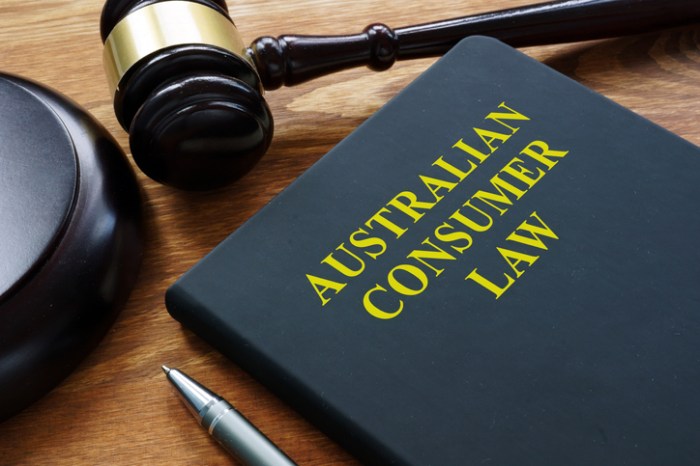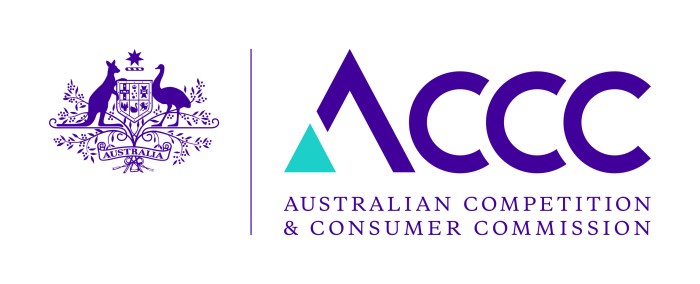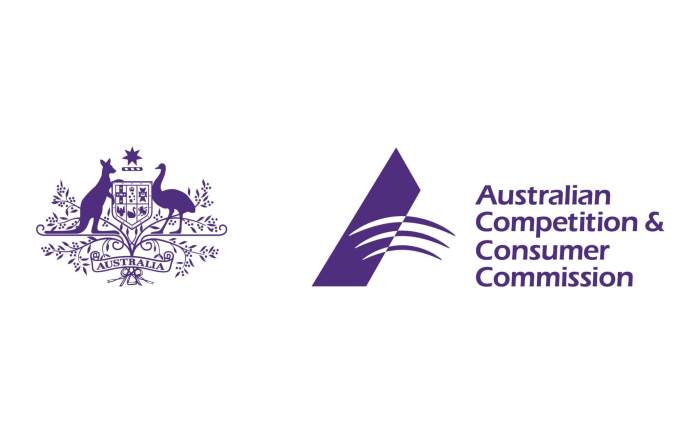
Who enforces Australian consumer law? This question delves into the heart of protecting consumer rights and ensuring fair business practices within Australia. The Australian Consumer Law (ACL) is a comprehensive piece of legislation that aims to safeguard consumers from unfair and deceptive conduct, and it’s enforced by a network of dedicated bodies. This article will explore the key players responsible for upholding the ACL, the methods they employ, and the crucial role they play in creating a fair and ethical marketplace for both consumers and businesses.
The Australian Competition and Consumer Commission (ACCC) is the primary body responsible for enforcing the ACL. The ACCC investigates complaints, conducts market surveillance, and takes enforcement action against businesses that violate the law. However, the ACCC isn’t alone in this task. State and territory consumer protection agencies also play a crucial role, focusing on enforcing the ACL within their specific jurisdictions.
Australian Consumer Law Overview

The Australian Consumer Law (ACL) is a comprehensive set of laws designed to protect consumers from unfair business practices and ensure they receive fair treatment in the marketplace. It is a national law that applies across all states and territories in Australia. The ACL aims to create a fair and transparent marketplace where consumers can make informed choices and feel confident in their dealings with businesses.
The ACL is a combination of the Competition and Consumer Act 2010 and the Australian Consumer Law (ACL) provisions in the Fair Trading Acts of each state and territory. It is enforced by the Australian Competition and Consumer Commission (ACCC) and state and territory consumer protection agencies.
Key Principles and Provisions
The ACL Artikels a range of principles and provisions that protect consumers. These include:
- Consumer Guarantees: These guarantees provide consumers with certain rights and remedies when goods or services are faulty, not fit for purpose, or do not match the description. They ensure that consumers can seek a refund, repair, or replacement if the goods or services they purchase fail to meet these standards.
- Unfair Contract Terms: The ACL prohibits businesses from including unfair contract terms in standard form contracts. This ensures that consumers are not subjected to terms that are one-sided or unreasonably disadvantageous.
- Misleading or Deceptive Conduct: The ACL prohibits businesses from engaging in misleading or deceptive conduct in relation to their goods or services. This includes making false or unsubstantiated claims, using deceptive pricing practices, or engaging in bait advertising.
- Unconscionable Conduct: The ACL prohibits businesses from engaging in unconscionable conduct, which involves taking unfair advantage of a consumer’s lack of bargaining power or understanding.
Role of the ACCC, Who enforces australian consumer law
The Australian Competition and Consumer Commission (ACCC) is responsible for enforcing the ACL. It has a range of powers to investigate and take action against businesses that breach the law. These powers include:
- Conducting investigations: The ACCC can investigate suspected breaches of the ACL, including gathering evidence and interviewing witnesses.
- Issuing infringement notices: The ACCC can issue infringement notices to businesses that have breached the ACL. These notices are a form of penalty that can be paid without admitting liability.
- Taking court action: The ACCC can take court action against businesses that have breached the ACL. This can result in fines, injunctions, or other remedies.
- Educating consumers and businesses: The ACCC plays an important role in educating consumers and businesses about their rights and obligations under the ACL.
Enforcement Bodies
The Australian Consumer Law (ACL) is enforced by a number of government bodies, each with specific powers and responsibilities. These bodies work together to ensure that businesses comply with the law and protect consumers from unfair or misleading practices.
The primary bodies responsible for enforcing the ACL are:
Australian Competition and Consumer Commission (ACCC)
The ACCC is the primary enforcement body for the ACL. It has a broad range of powers, including the ability to investigate breaches of the law, take legal action against businesses, and issue fines. The ACCC also plays an important role in educating businesses and consumers about their rights and responsibilities under the ACL.
The ACCC has a number of specific powers and responsibilities, including:
- Investigating breaches of the ACL
- Taking legal action against businesses that breach the ACL
- Issuing fines to businesses that breach the ACL
- Educating businesses and consumers about their rights and responsibilities under the ACL
- Monitoring and enforcing compliance with the ACL
- Developing and promoting consumer protection policies
State and Territory Consumer Affairs Agencies
Each state and territory in Australia has its own consumer affairs agency. These agencies have a range of powers and responsibilities, including:
- Investigating breaches of the ACL
- Taking legal action against businesses that breach the ACL
- Issuing fines to businesses that breach the ACL
- Providing advice and assistance to consumers
- Educating businesses and consumers about their rights and responsibilities under the ACL
Other Enforcement Bodies
In addition to the ACCC and state and territory consumer affairs agencies, there are a number of other bodies that may enforce the ACL in specific circumstances. These bodies include:
- The Australian Securities and Investments Commission (ASIC)
- The Australian Prudential Regulation Authority (APRA)
- The Australian Taxation Office (ATO)
Comparison of Enforcement Approaches
The ACCC and state and territory consumer affairs agencies have a range of enforcement approaches, including:
- Education and guidance: Providing information and guidance to businesses about their obligations under the ACL. This can be done through a variety of channels, such as websites, publications, and workshops.
- Compliance monitoring: Conducting audits and inspections of businesses to ensure they are complying with the ACL.
- Enforcement action: Taking legal action against businesses that breach the ACL. This can include issuing fines, injunctions, and other orders.
The enforcement approach taken by a particular body will depend on a number of factors, including the nature of the breach, the severity of the breach, and the history of the business. For example, the ACCC may be more likely to take enforcement action against a business that has a history of breaching the ACL, while a state and territory consumer affairs agency may be more likely to take an educational approach.
Enforcement Mechanisms

The Australian Consumer Law (ACL) is enforced by a range of government bodies, each with specific powers and responsibilities. These bodies use a variety of mechanisms to ensure businesses comply with the law and protect consumers from unfair or misleading practices.
Enforcement mechanisms are essential for deterring businesses from engaging in unlawful conduct, promoting fair trading practices, and providing redress to consumers who have been harmed by breaches of the ACL. The effectiveness of these mechanisms depends on several factors, including the resources available to enforcement bodies, the nature of the alleged breach, and the cooperation of the business involved.
Types of Enforcement Actions
Enforcement bodies can take various actions against businesses that violate the ACL. These actions aim to rectify the situation, deter future breaches, and protect consumers. Some common enforcement actions include:
- Infringement notices: These notices are issued for minor breaches of the ACL and require the business to pay a penalty. Infringement notices provide a quick and efficient way to address minor violations without resorting to lengthy legal proceedings.
- Court proceedings: For more serious breaches, enforcement bodies can initiate legal proceedings against businesses. These proceedings can result in various penalties, including fines, injunctions, and compensation orders.
- Public warnings: Enforcement bodies can issue public warnings to businesses that have engaged in unlawful conduct. These warnings inform consumers about the potential risks associated with the business and can serve as a deterrent for other businesses.
- Consumer redress: Enforcement bodies can work with businesses to provide redress to consumers who have been harmed by breaches of the ACL. This can include refunds, repairs, or compensation.
- Industry guidance: Enforcement bodies can issue guidance to businesses on how to comply with the ACL. This guidance can help businesses understand their obligations and avoid potential breaches.
Enforcement Mechanisms and their Effectiveness
| Enforcement Mechanism | Effectiveness | Limitations |
|---|---|---|
| Infringement notices | Effective for minor breaches, quick and efficient process. | Limited deterrent effect for repeat offenders, may not be suitable for serious breaches. |
| Court proceedings | Strong deterrent effect, can result in significant penalties and compensation. | Time-consuming and costly, may not be suitable for all breaches. |
| Public warnings | Can effectively inform consumers and deter other businesses. | May not be effective for businesses that are already engaged in unlawful conduct. |
| Consumer redress | Provides direct benefit to harmed consumers, can help to restore consumer confidence. | May not be effective if the business is unwilling or unable to provide redress. |
| Industry guidance | Can help businesses understand their obligations and avoid potential breaches. | May not be effective if businesses are deliberately seeking to circumvent the law. |
Consumer Rights and Remedies: Who Enforces Australian Consumer Law
The Australian Consumer Law (ACL) empowers consumers with a range of rights that protect them from unfair or misleading business practices. This section explores these key rights and the remedies available to consumers who have been wronged by businesses.
Key Consumer Rights
The ACL grants consumers a range of essential rights, ensuring they are treated fairly and receive goods and services that meet a certain standard. These rights include:
- Right to safe goods and services: Consumers have the right to purchase goods and services that are safe for their intended use and free from defects that could cause harm.
- Right to goods and services that are fit for purpose: Consumers have the right to expect goods and services that meet the purpose for which they were purchased.
- Right to goods and services that match descriptions: Businesses are obligated to provide goods and services that match the descriptions they provide, whether in advertising, online, or in-store.
- Right to a reasonable price: Consumers have the right to expect goods and services to be priced fairly and reasonably, without excessive markups or hidden costs.
- Right to receive goods and services within a reasonable time: Consumers have the right to receive goods and services within a reasonable timeframe, as agreed upon with the business.
- Right to be treated honestly and fairly: Consumers have the right to expect businesses to act honestly and fairly in their dealings, avoiding misleading or deceptive practices.
Remedies for Consumers
When consumers experience a breach of their rights under the ACL, they have the right to seek remedies from the business. These remedies can vary depending on the specific situation and may include:
- Repair or replacement: Consumers can request the business to repair or replace faulty goods or services.
- Refund or compensation: Consumers can seek a refund or compensation for financial losses incurred due to a breach of the ACL.
- Damages: Consumers can pursue legal action to claim damages for losses, including financial losses, emotional distress, or injury caused by a breach of the ACL.
- Injunctions: Consumers can seek injunctions to stop a business from continuing a practice that breaches the ACL.
- Public warnings: In some cases, the ACCC can issue public warnings to alert consumers about businesses that have breached the ACL.
Examples of Successful Consumer Complaints
Numerous successful consumer complaints highlight the effectiveness of the ACL in protecting consumer rights. For example, in 2023, the ACCC secured a $1.5 million penalty against a company that engaged in misleading advertising practices. This case demonstrated the consequences of violating the ACL and its commitment to protecting consumers from deceptive business practices.
“The ACL is a powerful tool for protecting consumers, and we encourage anyone who believes their rights have been violated to seek redress.” – ACCC Chair, Gina Cass-Gottlieb.
Business Responsibilities
The Australian Consumer Law (ACL) places a significant number of responsibilities on businesses to ensure fair trading practices and protect consumers. Understanding these responsibilities is crucial for businesses to operate ethically and avoid legal repercussions.
Importance of Compliance with ACL Regulations
Compliance with ACL regulations is paramount for businesses. Failure to comply can result in substantial financial penalties, damage to reputation, and loss of consumer trust. The Australian Competition and Consumer Commission (ACCC) is responsible for enforcing the ACL and can take action against businesses that breach its provisions.
- Financial Penalties: Businesses that breach the ACL can face significant fines, which can vary depending on the severity of the breach. For example, the ACCC can impose penalties of up to $10 million for corporations and $500,000 for individuals.
- Reputational Damage: Breaching the ACL can severely damage a business’s reputation, leading to negative publicity, loss of customer loyalty, and difficulty attracting new customers.
- Consumer Trust: Consumers are more likely to trust businesses that adhere to ethical practices and comply with consumer protection laws. Breaching the ACL can erode consumer trust, making it difficult for businesses to build lasting relationships with customers.
Practical Advice for Businesses to Avoid Breaching the ACL
Businesses can take proactive steps to ensure compliance with the ACL and avoid potential breaches. Here are some practical tips:
- Understand the ACL: Businesses must familiarize themselves with the key provisions of the ACL and how they apply to their specific industry and operations. This includes understanding consumer guarantees, unfair contract terms, misleading and deceptive conduct, and product safety requirements.
- Implement Clear Policies and Procedures: Develop clear policies and procedures for handling customer complaints, product returns, and other consumer-related issues. These policies should be consistent with the ACL and communicated effectively to staff.
- Train Staff: Provide staff with adequate training on the ACL and their responsibilities under it. This will ensure that employees understand consumer rights and can handle customer interactions appropriately.
- Monitor Products and Services: Regularly monitor products and services to ensure they meet the required safety standards and comply with consumer guarantees. This includes conducting quality control checks and responding promptly to any safety concerns raised by customers.
- Seek Legal Advice: When in doubt, seek legal advice from a qualified professional. This can help businesses interpret the ACL, navigate complex situations, and avoid potential breaches.
Last Recap

Ensuring fair and ethical business practices is essential for a thriving economy, and the Australian Consumer Law (ACL) plays a vital role in achieving this. The enforcement of the ACL is a collaborative effort, with various bodies working together to protect consumer rights and hold businesses accountable. By understanding the roles and responsibilities of these enforcement bodies, consumers can be empowered to navigate the marketplace confidently, knowing that their rights are protected. Ultimately, the enforcement of the ACL fosters a more transparent and trustworthy business environment, benefiting both consumers and businesses alike.
Frequently Asked Questions
What happens if a business breaches the ACL?
Enforcement bodies can take various actions against businesses that breach the ACL, including issuing infringement notices, seeking court injunctions, and imposing penalties. The specific actions taken will depend on the severity of the breach and the circumstances of the case.
How can I make a complaint about a business that has breached the ACL?
You can make a complaint to the ACCC or your relevant state or territory consumer protection agency. These agencies will investigate your complaint and take appropriate action if necessary.
What are the key consumer rights protected by the ACL?
The ACL protects a range of consumer rights, including the right to safe and durable goods, the right to truthful and accurate information, and the right to fair and ethical treatment.